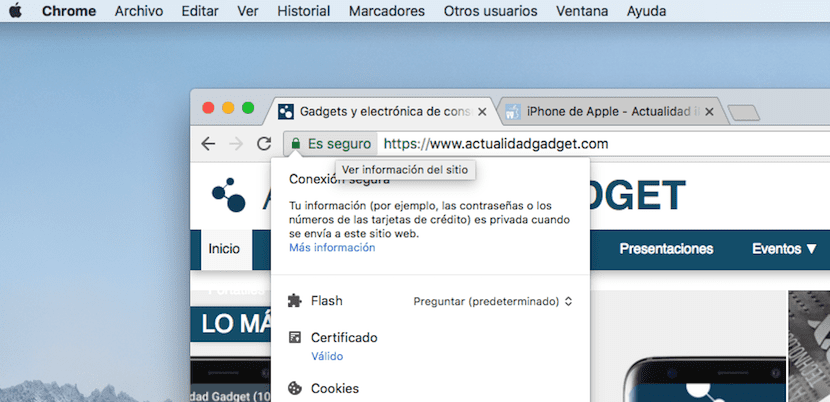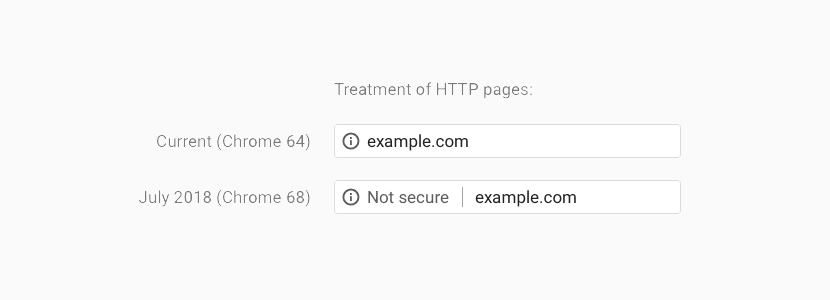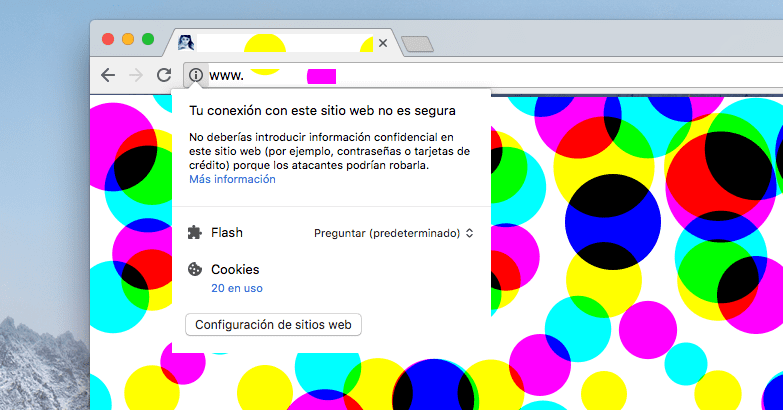
Friends of others, try to find any weak point to take advantage of others. Internet is one of them. Surely on more than one occasion, you have received an email that tries to impersonate your bank, mail provider, telephone company ... urging you to access a website to change your password.
This technique is called Phising, and it has become a very popular tool among friends of others, who have also seen how browsers contributed to the theft of data, since they did not report at any time that we were entering our data in an unsecured website. But this is over. Chrome will start informing users when we try to access a website that does not use the HTTPS protocol.

The websites that use the HTTP protocol do not encrypt the data that we enter to access at any time, so if someone intercepts them on the way, they can easily access them. Due to this lack of security, the HTTPS protocol was born, a protocol that encrypts data from when it leaves our computer until it reaches its destination, therefore if someone intercepts them on the way, they will never be able to access them.
Banks and mail servers are what this protocol has traditionally always used, but to increase the security of users, this protocol has become almost an obligation to be adopted by most web pages, not only to offer trust to the user, but also to not be excluded from search results.

From version number 68 of Chrome, every time we visit a web page that is not secure, that is, it does not use the HTTPS protocol, the Google browser it will show us a message "Not sure" next to the web address to notify the user that if they enter any type of data, their sending will not be encrypted at any time, with the risk that this entails. Currently, as we can see in the image above, when we visit a non-secure website, Chrome does not offer us that information in a simple way, as if it does with websites that do use the HTTPS protocol (image that heads this article)